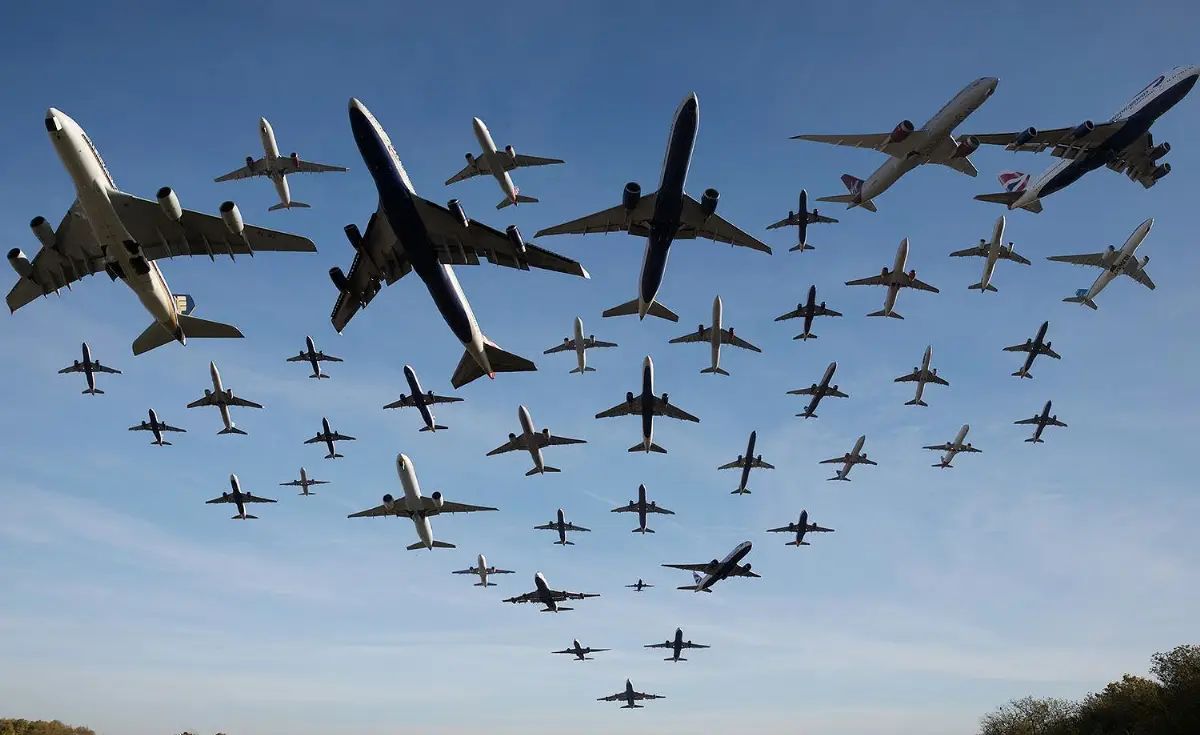
Russian airspace closure causes aviation emissions increase
The measure, forcing substantial deviations from the route, has weighed on CO2 emitted globally

The exclusion of Russian aircraft from Western airspace –following Russia’s invasion of Ukraine in February 2022– has forced European airlines to make substantial detours, with measurable impacts on global air transport CO2 emissions in 2023, according to a recent study published in the "Nature"-affiliated journal "Communications Earth & Environment".
The bans imposed by NATO and EU member States meant that European carriers had to avoid not only Russian airspace, but also Ukrainian and Belarusian airspace. This meant that flights had to be rerouted via Central Asia or the Arctic to connect strategic destinations such as Beijing, Tokyo and Seoul. This rerouting resulted in an increase in average flight distance, which translates into increased CO2 emissions.
The authors of the study analyzed 750,000 air trips made between March 2022 and December 2023 –equivalent to about 1,100 flights per day out of a global average of 90,000 daily flight connections. The results show that due to these diversions, aviation emissions increased by about 8.2 million tonnes of CO2 in 2023, corresponding to an increase of 1% compared to a scenario without such restrictions. In practical terms, each diverted flight emitted on average 18 tonnes more CO2, an amount comparable to that of a typical short-haul flight.
Other factors and perspectives
The analysis suggests that while the overflight ban has led to longer diversions, Russian airlines may have contributed to containing emissions by operating fewer long-haul flights since 2022. In addition, some operators have preferred to opt for intermediate stops in the Middle East, a solution that is cost-effective compared to direct connections and, in some cases, leads to a lower carbon footprint. International sources, including the Federal Aviation Administration (FAA), and the National Transportation Safety Board (NTSB), underline the importance of further investigating these impacts in order to plan targeted interventions and emission reduction strategies in the aviation sector. Such studies are crucial to inform environmental policies and contribute to global efforts to decarbonise air transport, in line with the objectives of the European Green Deal.
AVIONEWS - World Aeronautical Press Agency